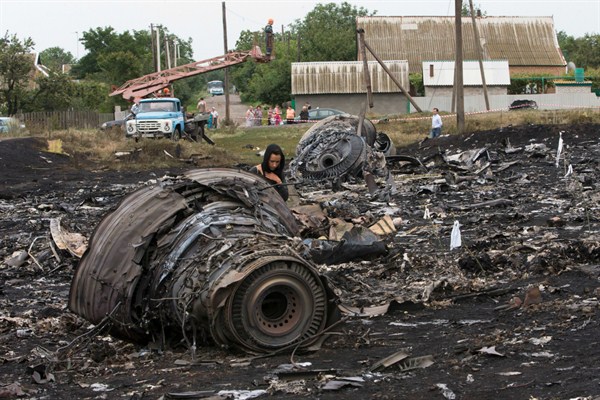Yesterday’s downing of Malaysian commercial airliner MH17 near Donetsk, killing 298 civilian passengers and crewmen, marks a shocking turn in the ongoing conflict over eastern Ukraine. New information is still coming out, but as of this writing we know that some of the passengers were researchers and activists heading to an international AIDS conference in Melbourne.* At least nine nationalities were represented on board, ranging from the Netherlands to the Philippines, and possibly, though the State Department has yet to confirm, some number of Americans. While nothing has been conclusively proven, all signs point to a surface-to-air missile launched by rebels in eastern Ukraine, the same rebels who for months have been receiving armaments and financial support from the Kremlin.
As The Atlantic’s Kathy Gilsinan (a personal friend and former WPR associate editor) points out, this could be a turning point in the history of irregular warfare. Civilian aircraft have been mistakenly shot down before, perhaps most famously in 1983 when the Soviet Union destroyed a Korean Air Lines flight over its airspace. But rarely have non-enlisted militia groups had access to weapons capable of taking down an airplane at 30,000 feet. As Gilsinan writes, “Such an attack would indeed represent a major feat for a nonstate actor. . . . The necessary capabilities tend to be under the control of governments.”
As the U.N. Security Council convenes an emergency session today, the geopolitical implications of this disaster are beginning to come into focus. Russia and its rebel clients, who call themselves the Donetsk People’s Republic, have both denied responsibility for any missile launch. Russian President Vladimir Putin has gone so far as to suggest that Kiev is responsible because the launch took place over Ukrainian airspace, an assertion so brazen as to practically constitute an admission of guilt.

